One of our readers and a good friend of mine, Dayton, requested a story on whether RV camping is cheaper than a hotel. Indeed, many people ask “What is the cheapest way to see the country?” Is it in an RV? Are hotels cheaper? What about renting a camper van or a bigger RV? We have done all three and, believe it or not, I keep detailed records of how much everything costs.
Each style of road trip (RV, rented camper van, hotel) has its pluses and minuses and we still (or would) do all of them. In warmer weather, you can find us towing our camper throughout the country. In colder weather or quicker trips, we will stay in hotels. And while we don’t have a camper van, we have rented one and would do it again.
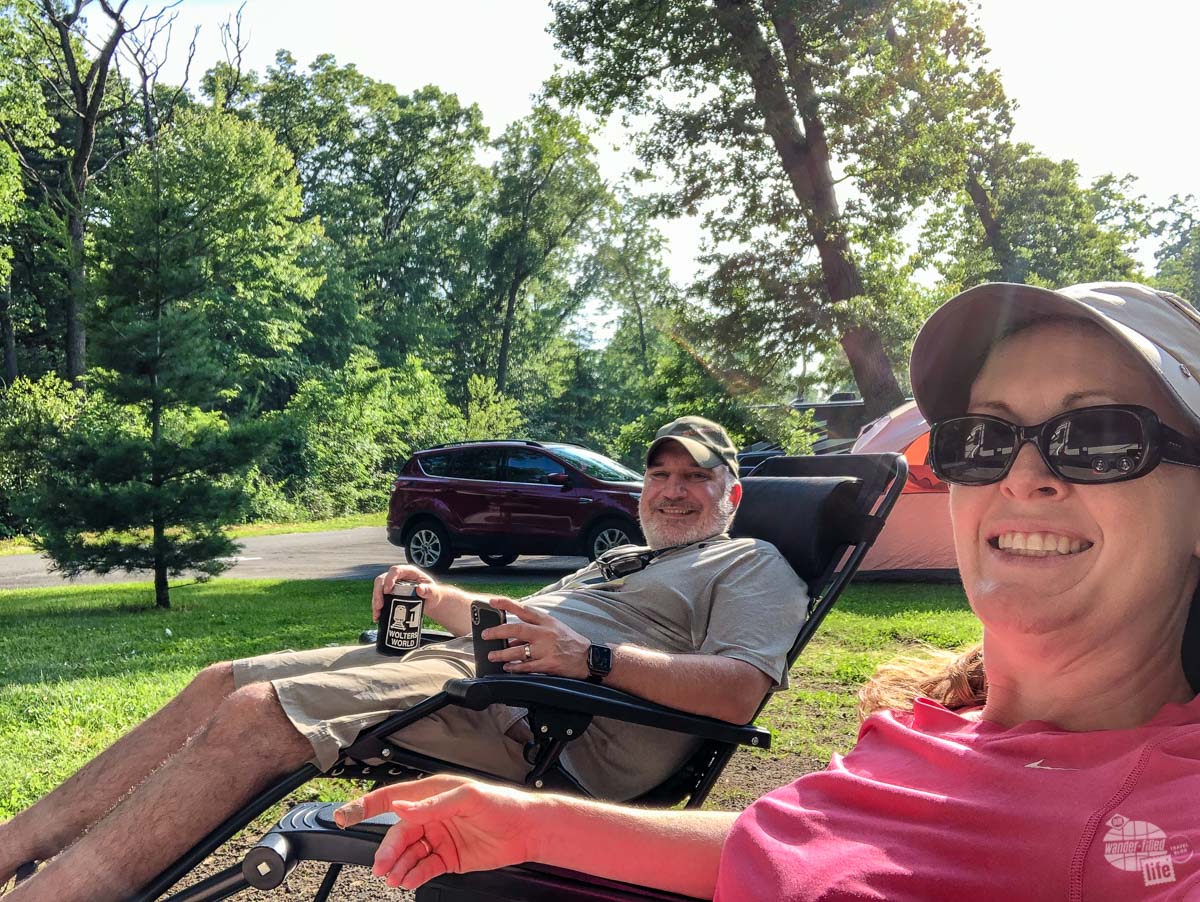
So, here is our breakdown of real-world costs for these types of road trips. To keep this comparison apples to apples, I am looking at road trips where we used the same vehicle, our first Ford F-150 (other than the camper van trip, obviously).
Because of that, some of these costs are several years old and current costs would be even higher. Additionally, we all know that fuel prices can fluctuate even more than some other costs and, of course, fuel costs are a major component of any road trip.
Still, we are using trips that were within a couple of years of each other to ensure the most accurate cost comparison. So, let’s answer the question: Is RV camping cheaper than a hotel?
(Disclaimer: When we link to places where you can buy our stuff or places we stayed, we are using special codes that earn us commissions on the sales at no additional cost to you. Please see our Review Policy for more information.)
Road Trip with Hotel Stay Costs
In the winter of 2015, we headed West, visiting Wyoming, Montana, Idaho and Colorado over Christmas Break. We spent 16 days on the road, driving 5,967 miles.
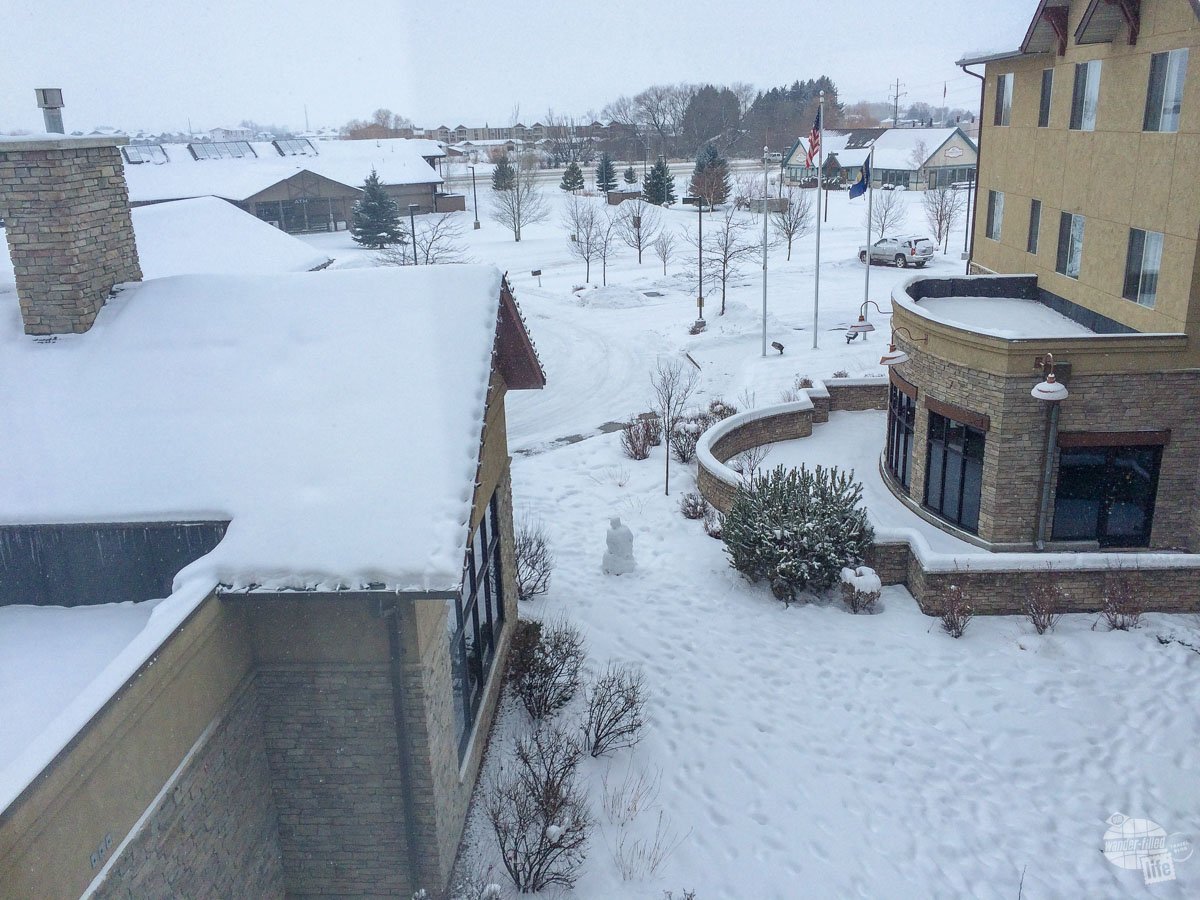
For this trip, we spent $2,274.56, an average of $142.16 per day. Accommodations accounted for $29.37 per night.
Since it was a winter road trip, we did not camp at all, staying in hotels every night. We spent 190,000 Hilton Honors Points and $469.87 for hotels for the trip. That averages to $93.97 for the five nights we paid for and 19,000 points for the nights we used points.
Read more about our winter trip out West.
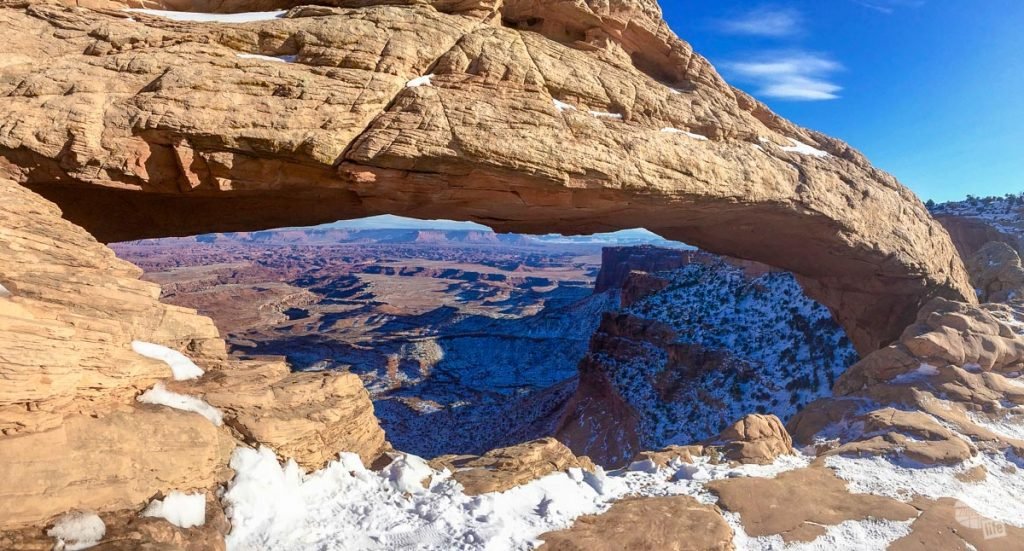
Assuming we paid the average for hotel rooms instead of points, we would have spent nearly a thousand dollars more, driving our per-day expenses up to $200.89. Ouch!
Our fuel cost on this trip was a bit more than $0.11 per mile for a total of $667.63.
Read more about our credit card recommendations for road trips here.
Other Considerations for a Hotel Road Trip
In terms of gear, doing a road trip and staying in just hotels means you don’t need that much extra gear. That is nice. Typically, we only take a couple of camp pillows, a travel router for WiFi, and an Amazon Fire Stick for watching our shows on streaming services.
Despite owning a camper, we do hotel road trips often in the winter or when we fly somewhere for a shorter trip. The difficulty we have is finding affordable hotels near the national parks we love to visit.
While it is possible to use points to pay for your stays at national park lodges (Capital One Venture Points are great for this purpose), the redemption is often not that great in terms of value. That typically means we end up staying further from our intended destination than we want like we had to on our 2023 Montana road trip.
Read more about our 2023 Montana road trip to Yellowstone and Glacier here.
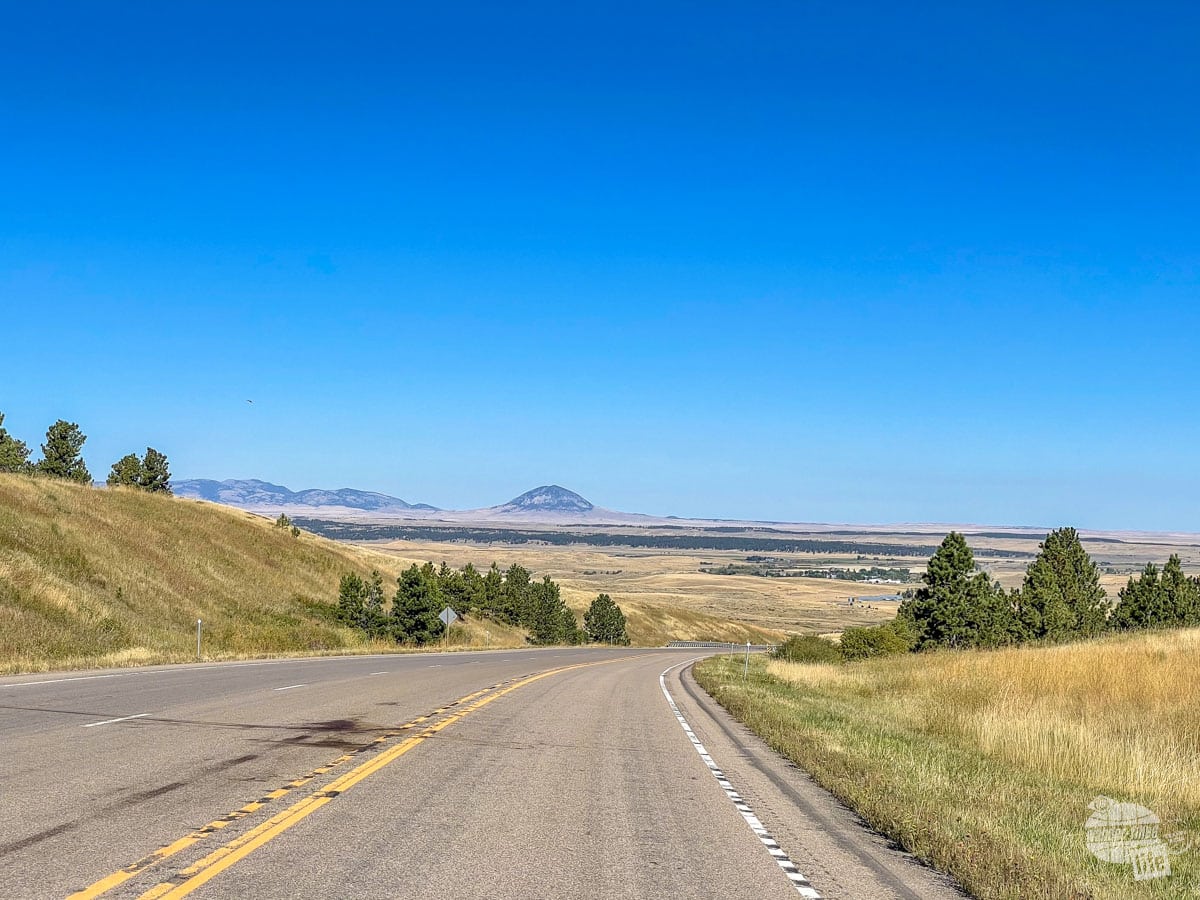
Additionally, when it comes to hotels, there can be a vast difference in quality between brands and that quality typically comes with a price. We like to stay at Hilton properties, ending up at Hampton Inns or Hilton Garden Inns more often than not. Those are more expensive than some other brands but we find the quality is better.
RV Road Trip Costs
We have been RVing now for eight years and have taken our camper on the road every summer for approximately four to six weeks on each trip. While we have had expensive trips in terms of fuel costs or campground costs, we have found, in the end, it balances out.
On our first major road trip with the camper, we spent $5,426.02 over 38 days, spending an average of $142.79 per day. We drove 6,690 miles, towing the trailer for a large portion of those miles.
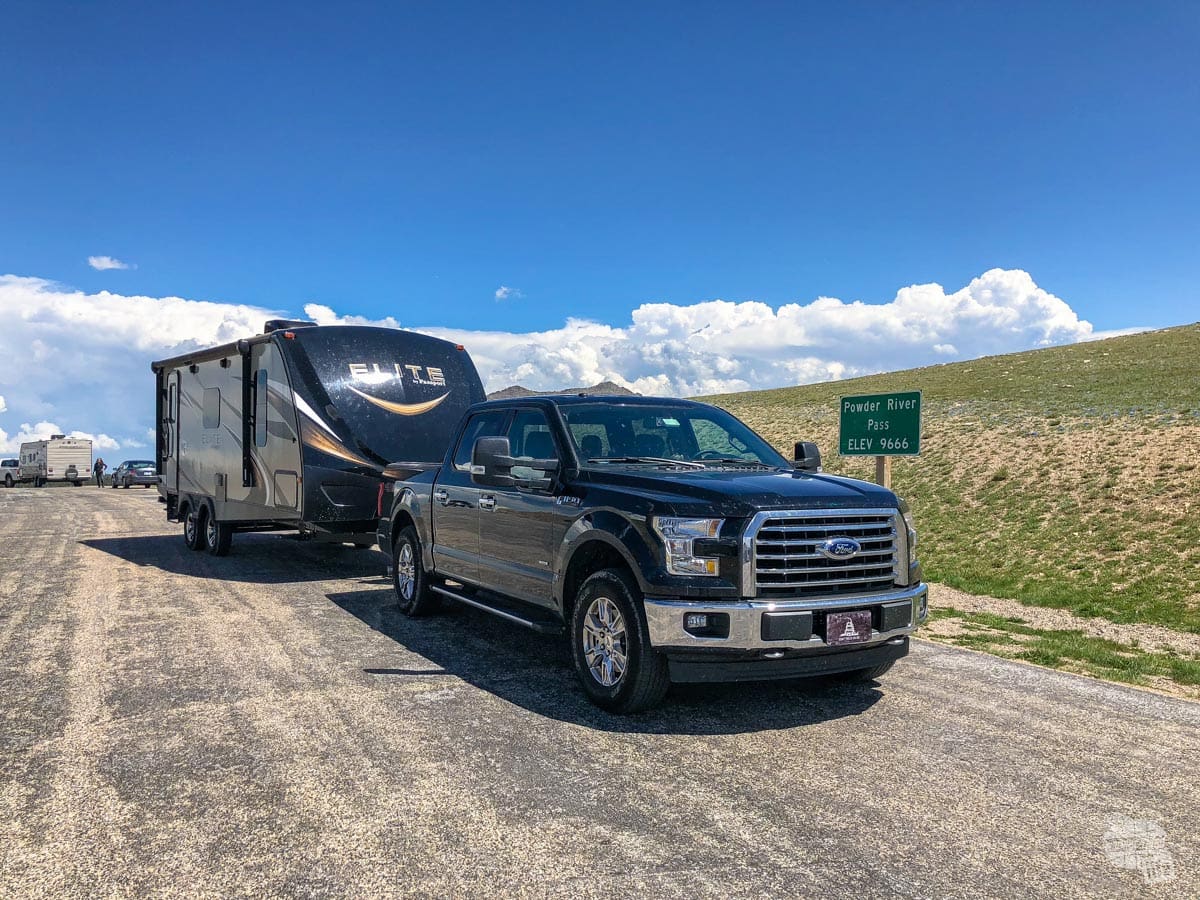
We stayed in RV campgrounds every night, most with full hookups. Our campgrounds cost $1,726.37, an average $45.43 per night with full hook-ups at each site.
Even if we were to add the monthly RV payment, yearly storage costs and the increased cost of gas into the cost of spending the night in the camper, we are still looking at $60.80 per night. That’s a pretty big savings over hotel rooms AND you get to sleep in your own bed every night.
The truck gets about 10.5 mpg towing the camper. Amazingly, we spent $1,149.66 on gas, which amounts to $0.17 per mile. Obviously, gas prices played a huge role in the difference between this trip and the Summer 2014 road trip. That said, gas prices were pretty similar to the prices to the Winter 2015 road trip.
Other RV Road Trip Cost Considerations
That said, you need a lot of extra gear when you camp in an RV… A lot of gear! But your cost investment in gear can be spread over many trips.
Read more about the gear you need to outfit an RV here.
Also, you have to factor in maintenance on the camper. While we have not found maintenance to be terribly expensive, you will need to take it into the shop from time to time. You will need to replace the tires. You will need to maintain the roof. You will need to fix systems, like an AC or a water pump, that fail.
The real benefit, though, is being able to sleep in your own bed every night… to wake up in amazing places in the comfort of your own home. You will also have more room to take the gear and clothes you might need with you.
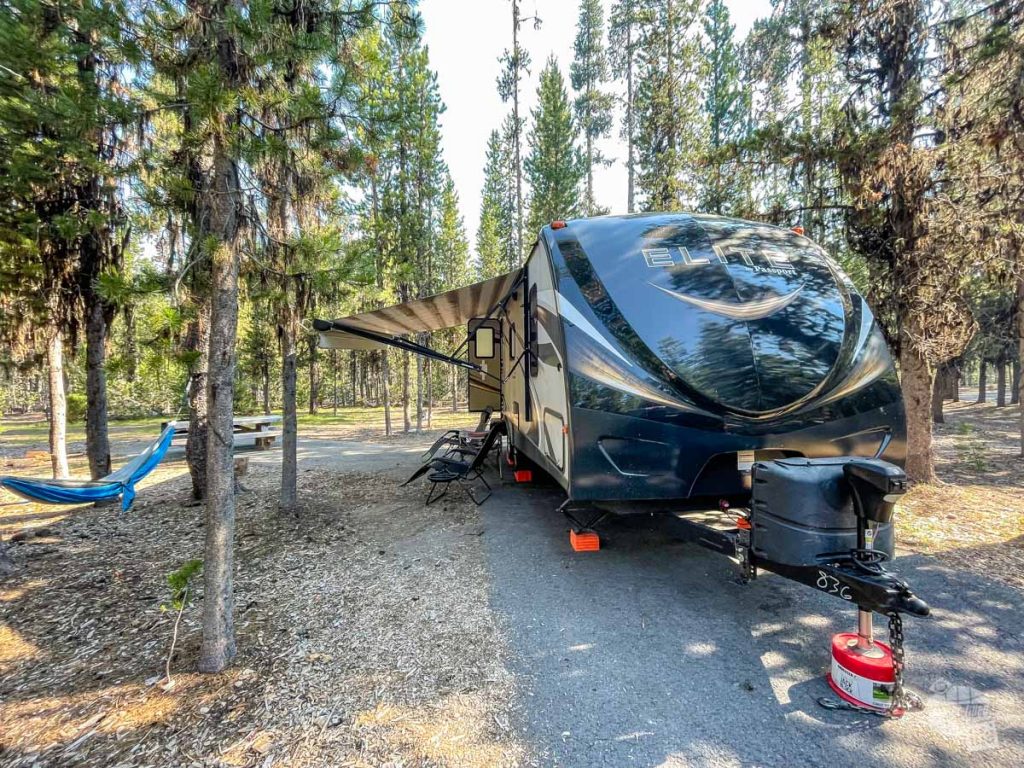
Truthfully, you can find cheaper campgrounds than we typically book. We mostly camp in full hookup campgrounds because we like to be able to use our shower and have air conditioning. This, however, drives up costs.
There are plenty of places, especially out West, where you can camp on public lands (boondocking) for free for up to two weeks at a time. We are looking forward to spending time doing just that in the future! You can also stay in cheaper campgrounds which do not offer connections (dry camping). We have done that a few times (like one of our favorite campgrounds near Crater Lake National Park) and had a great time doing it.
The drawback to that kind of camping is you have to be prepared for the lack of utilities, such as electricity and water. Some RVs are better suited to boondocking or dry camping than others and many newer RVs come prewired for solar power, allowing campers to camp without an electrical connection for even longer.
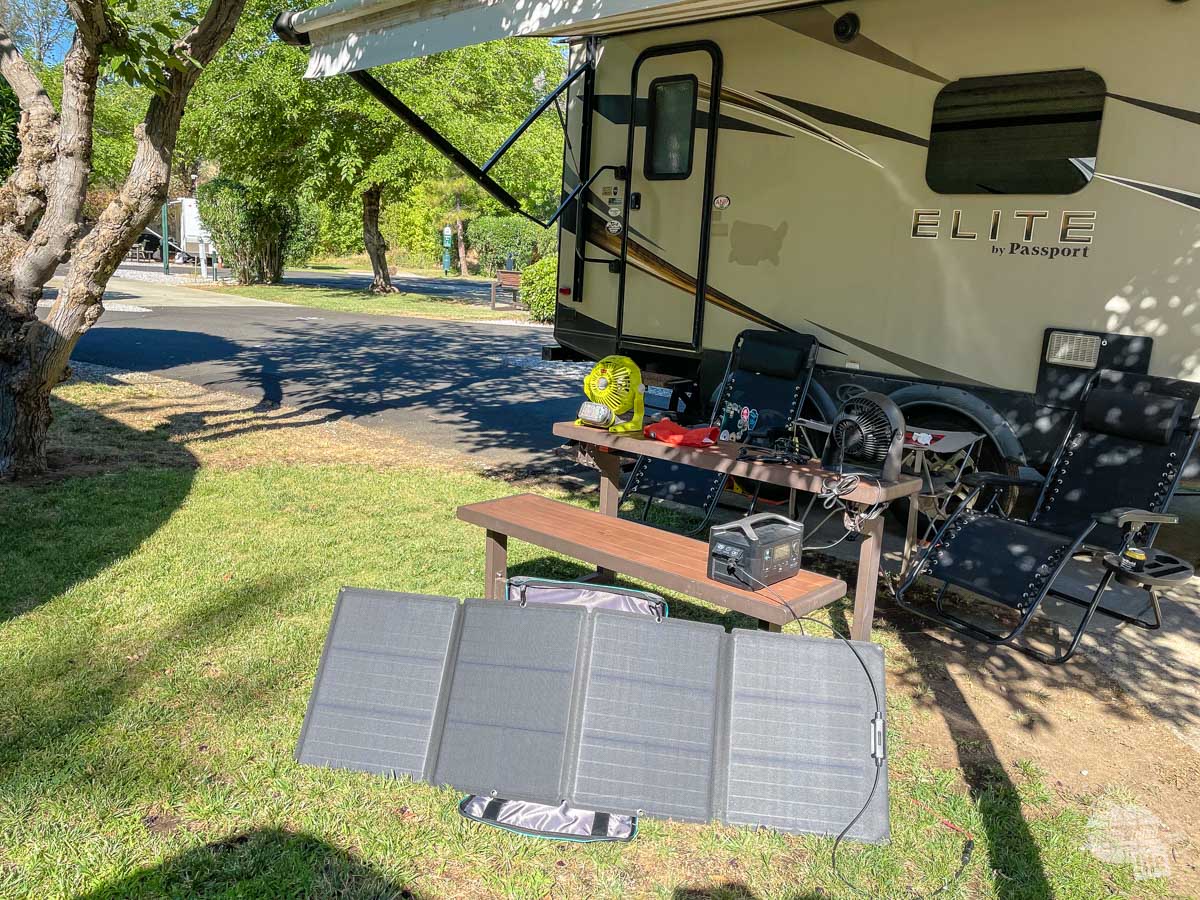
Costs for a Week in a Rented Camper Van
In 2019 we spent a week in a rented camper van, visiting Rocky Mountain National Park and South Dakota’s Custer State Park for the Buffalo Roundup.
We spent a total of $3,021 over eight days, spending an average of $377.63 per day. When we subtract the airfare, it drops the price per day down to $304.13. We drove 1,029 miles through the course of the week.
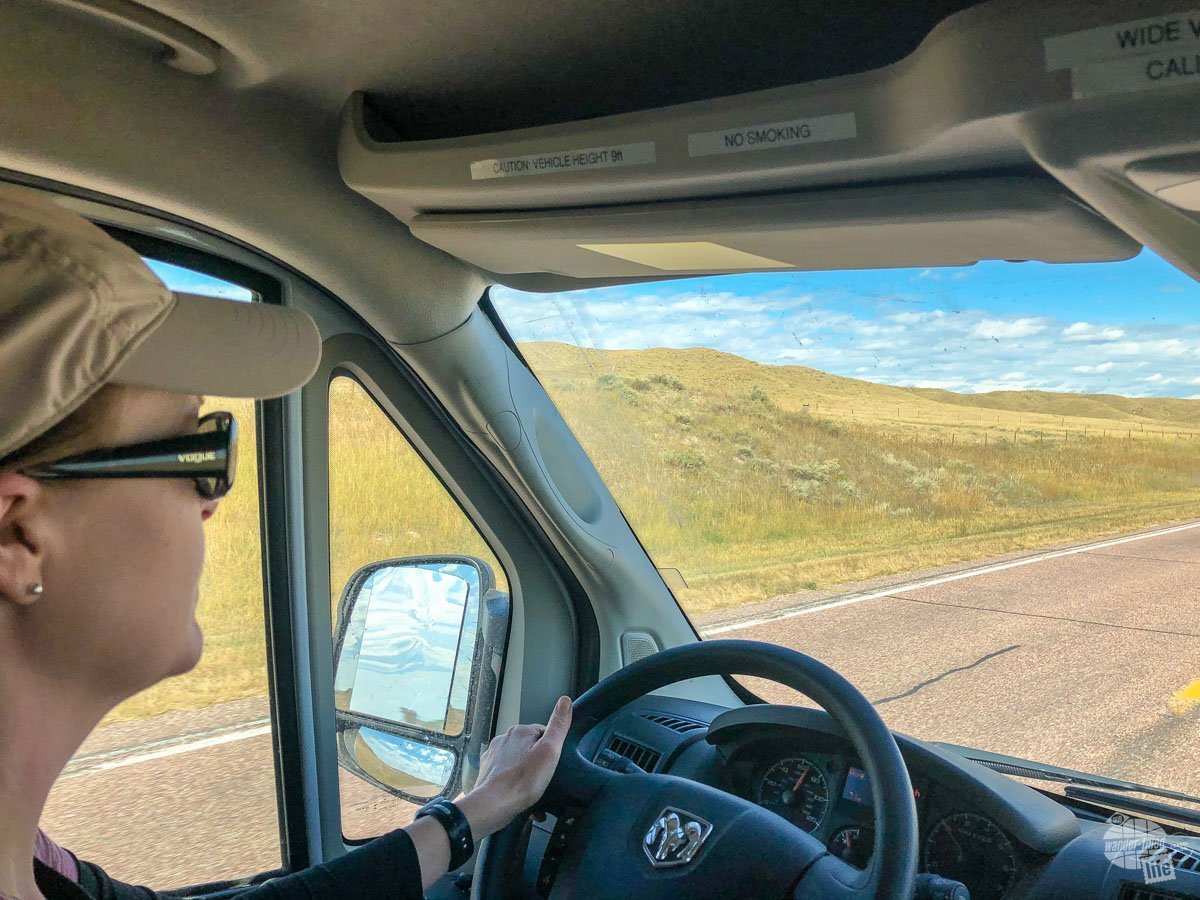
We stayed in campgrounds every night, costing $184.31, an average $26.33 per night. That said, you have to factor the rental cost of the camper van in as well. The camper van rental cost us $1,298.66, an average of $185.52 per night. A larger RV would, typically, cost even more to rent.
If you subtract an average of $35 per day for a car rental from the Denver airport, that means we were paying an average of $176.85 per night to use the camper van versus staying in a hotel and renting a car. For this trip, though, the additional expense was worth it because we were able to stay inside Rocky Mountain National Park and find a place to stay in Custer, SD during one of its busiest times.
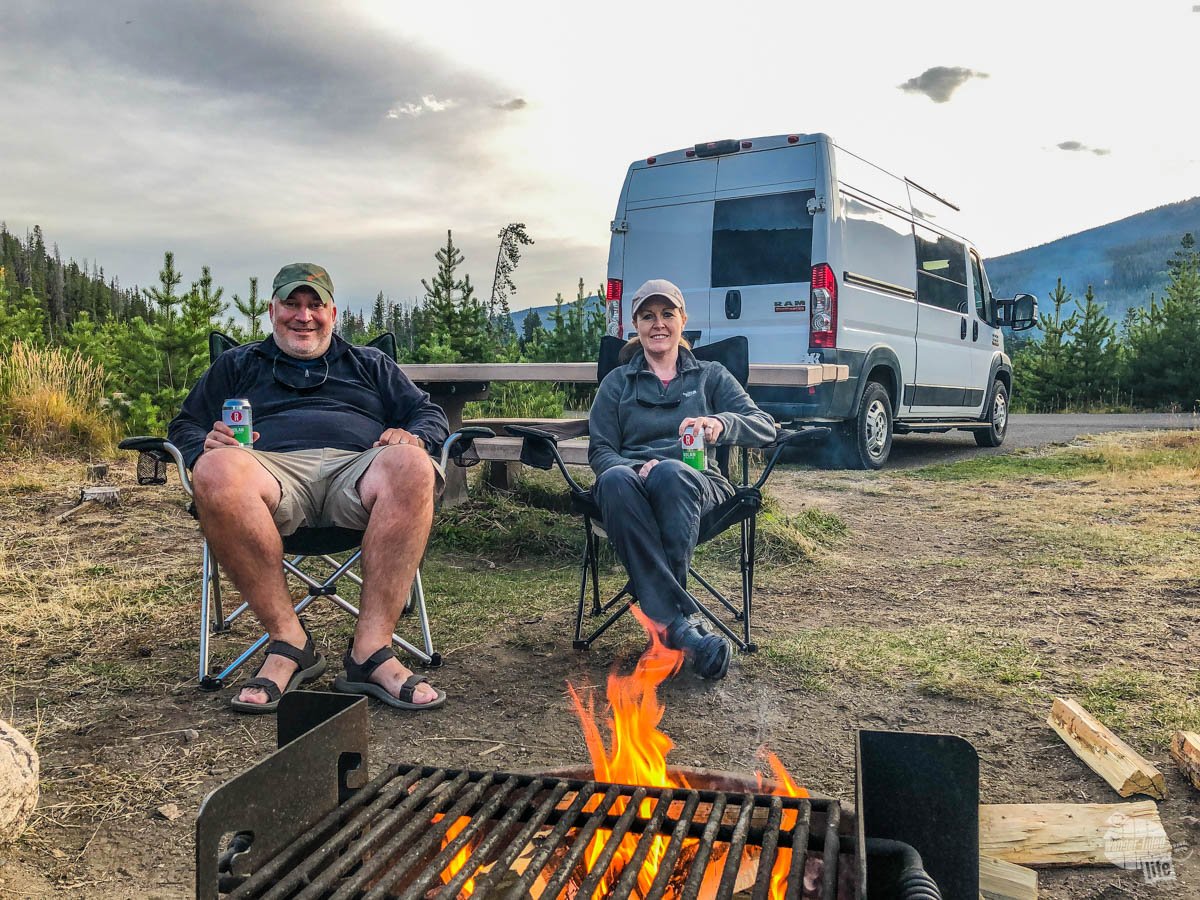
In terms of fuel, we spent $176.38, amounting to $.17 per mile, with an average mileage of 15.3 mpg. While the van certainly got better gas mileage than the truck towing the camper, I don’t know if it was that much better to warrant getting a camper van versus a travel trailer. That said, if you don’t need a truck, then a camper van might be a more affordable option, especially if you build out your own van.
Renting a camper van, or any RV, is not going to be more affordable except in terms of time. Since we only had a week for this trip, it made sense for us.
Check out our Outdoorsy rental review.

One More Cost Consideration: Breakdowns on the Road
Regardless of whether you drive a car, pull a camper, drive a camper van or drive a motor home, breakdowns happen and that can add to your costs.
To be completely fair, RVs are more difficult to find service for than cars. Oftentimes, you need a dedicated RV shop to make repairs and many of those RV shops have significant waits on repairing a camper. We have gotten lucky where we have only really been delayed in our travels once due to RV repairs.
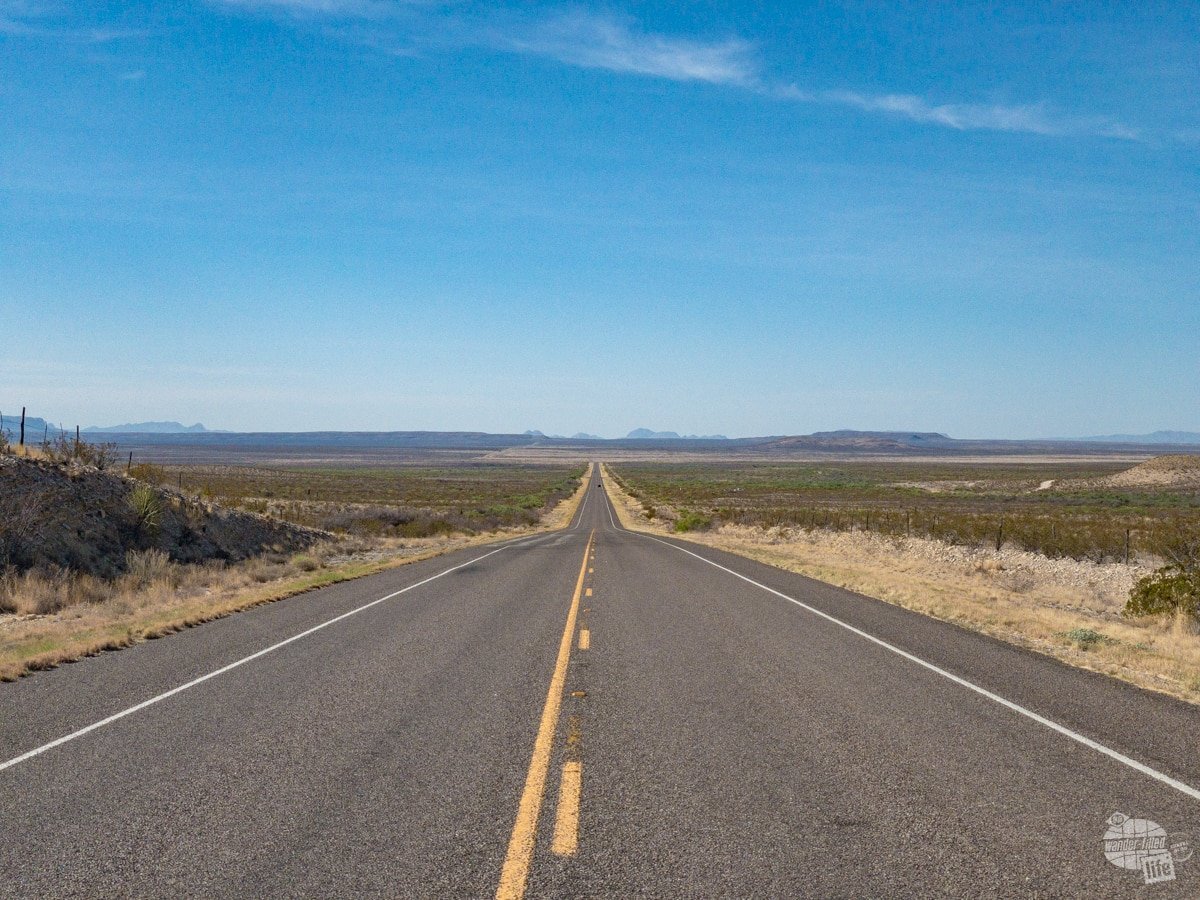
Still, we had similar problems with getting repairs for our truck after a winter road trip. It required renting a car and leaving our truck in Shreveport for a week. So, no matter what kind of vehicle you drive on the road, you can have costly and time-consuming delays.
But What About a Tent Camping Road Trip?
For those really looking to save money, let’s take a quick look at the costs of tent camping. Before we got an RV, we took several long tent-camping road trips. Indeed, our first long road trip together was a tent camping trip to Yellowstone National Park. That road trip cemented our relationship.
We thoroughly enjoyed tent camping. We gave it up for two reasons: we wanted to take our cat on the road with us for long trips and our backs just could not handle sleeping on an air mattress for long stretches. Thus, we came up with our rule of staying in a hotel on long driving days or after long stretches of staying in a tent.
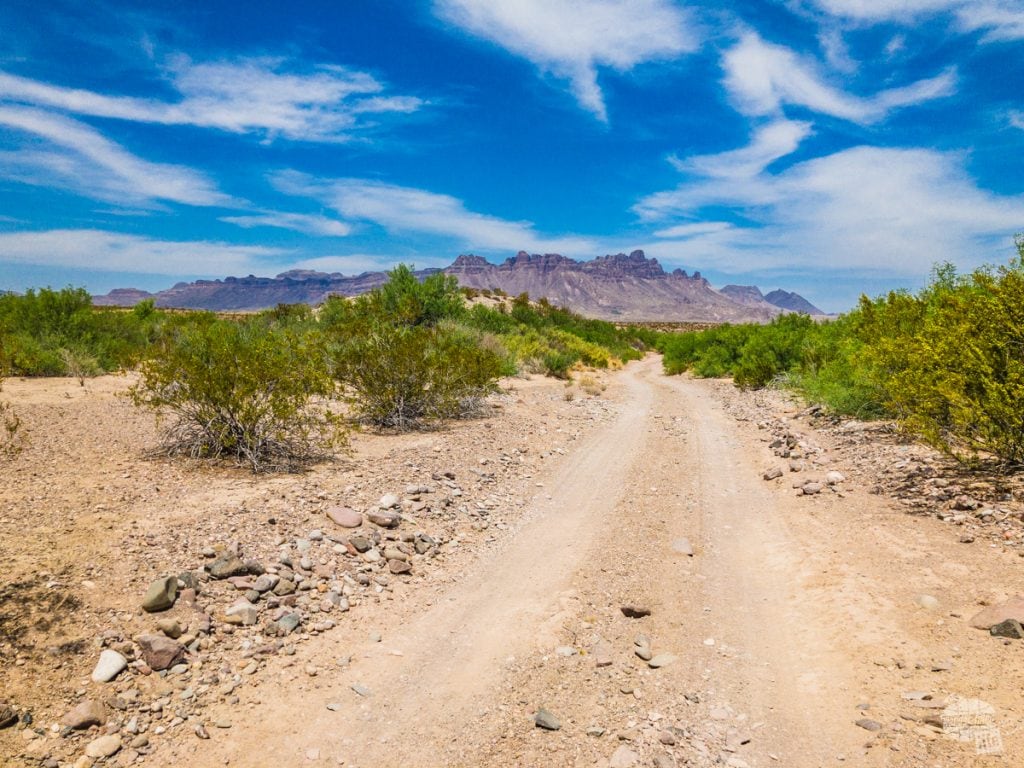
Our last long tent camping trip was to out to Wyoming back in 2014. It was 30 days long and we covered 6,790 miles.
For that road trip, we spent $3,146.04, an average of $104.87 per day. Accommodations accounted for $13.53 of that daily average. That said, we spent 10 out of those 30 days in hotel rooms that we paid for with Hilton Honors points instead of cash, two in a dorm room in Lincoln (for a school related stop) and one night we paid for (paying $80 for a Hilton Garden Inn was better than using points).
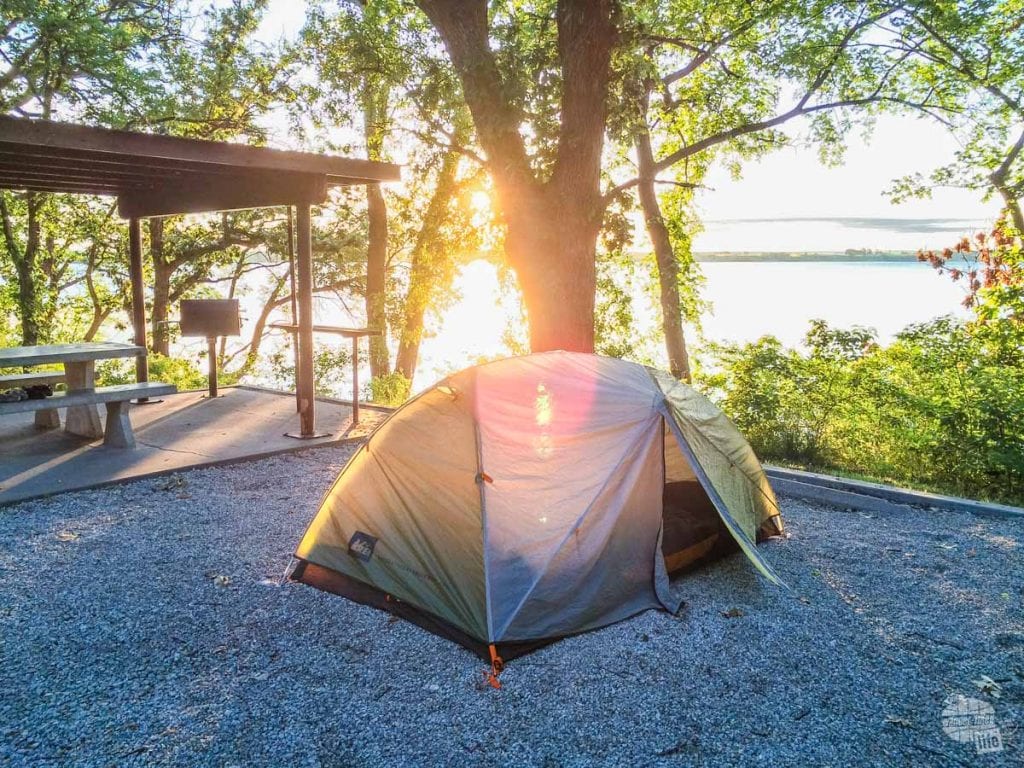
That means we only camped 16 of those nights, paying an average of $21.80 per night in campsite fees.
Unfortunately, I don’t have access to how many points I spent during that trip… Hilton Honors only goes back so far in terms of stay information. I would guess that we spent around 15,000 points per night, on average. The Points Guy valued Hilton Honors Points as $0.005 per point in 2014. Thus, we averaged about $75 worth of points per night.
That would have driven our per-day cost up to around $43.53 per night for accommodations, adding about $900 to the overall trip and increasing the per-day cost to $134.86 per day.
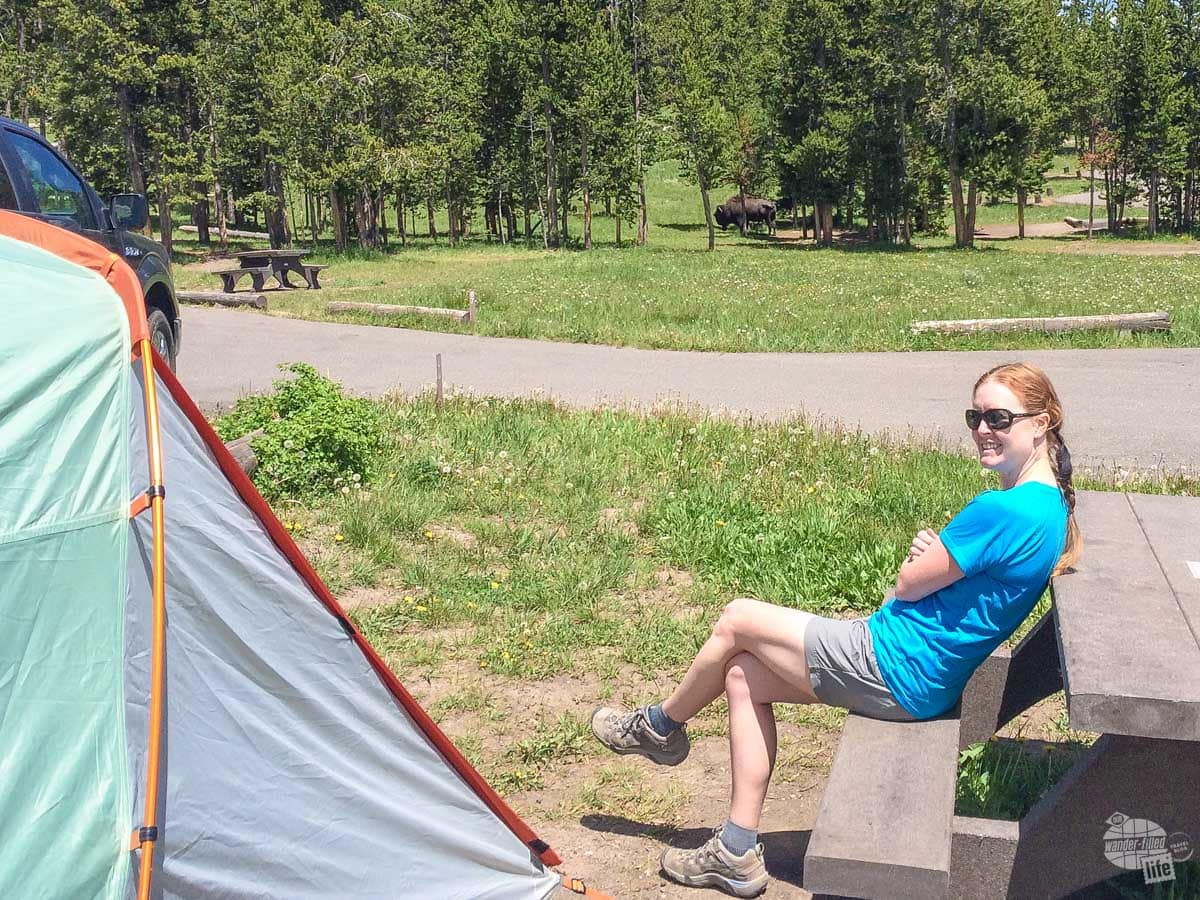
Our F-150 typically got around 18-20 mpg on the highway when not pulling the camper and each mile we drove cost us around $0.19 per mile for a total of $1,301.53 on gas.
Tent camping is certainly cheaper than staying in a hotel and we enjoyed the heck out of our tent camping road trips. That said, you do sacrifice quite a bit of comfort versus staying in a hotel or an RV.
Read more about our tent camping gear recommendations here.
Final Thoughts on Whether RV Camping is Cheaper Than a Hotel
I know there is a lot of math and numbers to answer the question “Is RV camping cheaper than a hotel?” In terms of the cost of a road trip, tent camping is a lot cheaper than RV camping, which is cheaper than staying in a hotel. Both are cheaper than renting a camper van.
Yes, there are equipment costs and additional fuel costs with camping. Even then, camping in an RV is about 1/3 cheaper than getting a comfortable (Hampton Inn or Hilton Garden Inn) hotel room every night.
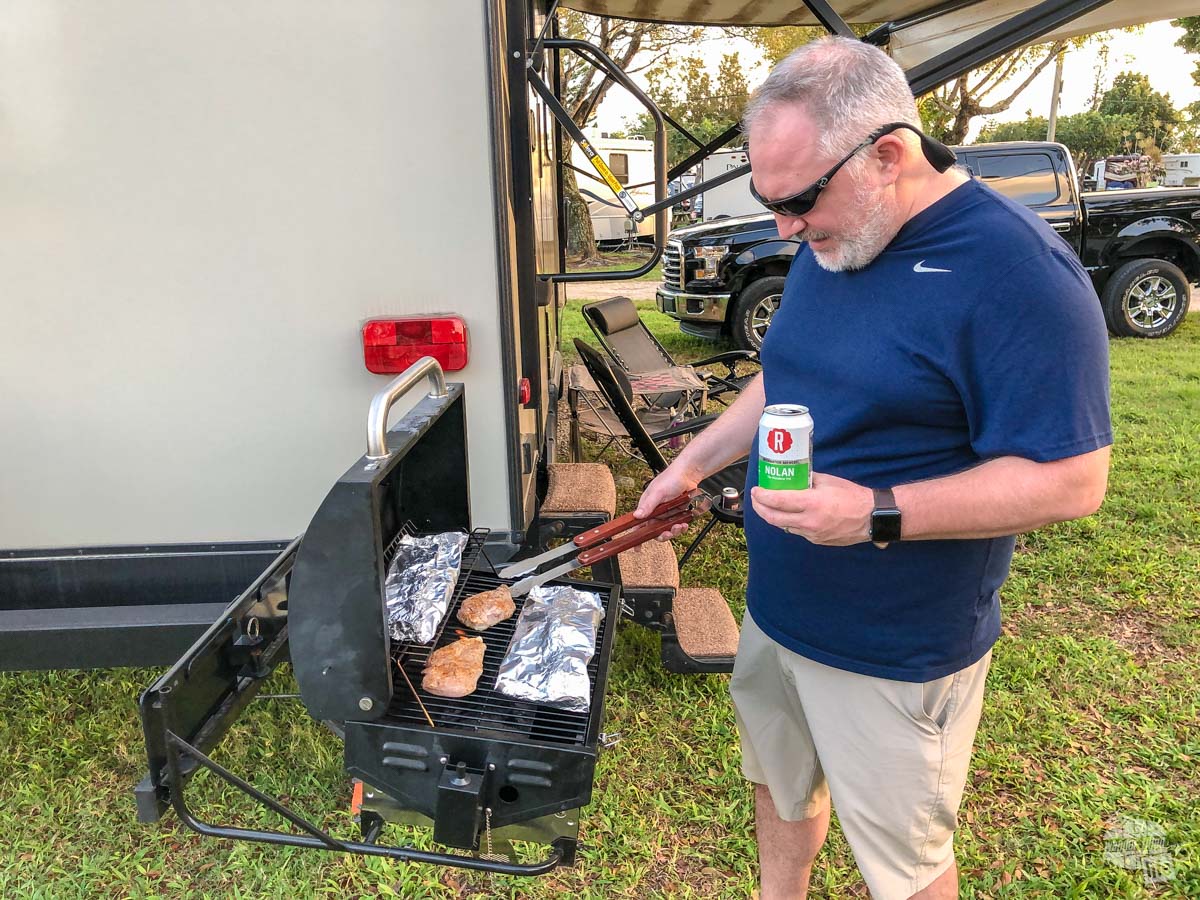
Add in the fact you can cook your own food in lieu of going out to eat, can store perishable food in the fridge and only have to unpack your clothes once, it becomes an even better deal.
While your math of RV ownership could very well be quite different than ours, we have been able to get much more than our money’s worth on our camper in terms of the experiences we have and the places we have stayed. Truly, there is no substitute for traveling across the country in your own home, even if it’s just a part-time home.
We have been road-tripping since we started dating in 2009. We have been RVing since 2016. We are quite glad we bought a camper and really enjoy using it as a way to see the country.
Travel Resources
What do you use to find a flight?
We use Skyscanner to find deals on flights. Skyscanner has a great interface and compares tons of airlines for the best pricing and routing. That said, it does not always have every airline and some airlines will have better deals on their website. Still, Skyscanner is a great place to start.
Click here to search for a flight.
What do you use to find a hotel?
We typically stay at Hilton properties, so we use the Hilton website. You can find good Hilton Honors discounts or AAA discounts for a hotel there. We make great use of our free night certificates from our Hilton Honors American Express.
Click here to book a Hilton property.
If there are no Hilton properties available, we use TripAdvisor to read reviews and book the hotel. We find we can get the best price that way.
Click here to search for a hotel.
We recently partnered with Stay22 to add interactive maps to each of our destination posts. This will allow you to see a plethora of hotels and vacation rentals all in one responsive map of the area.
What if I need more space than I can get at a hotel?
We use Vrbo for the times when we have rented a cabin for a weekend getaway, like this cabin in Townsend, TN, or needed to rent a house for a large family vacation. We had a great experience with them in terms of refunding deposits when COVID hit and will continue to use them.
Click here to search for a vacation rental.
Who do you use for rental cars?
As a general rule, we book with Hertz for rental cars. We have had nothing but good experiences with them. Plus, we really like unlimited mileage and not worrying about crossing state lines. We have even rented from Hertz overseas in both Slovenia and Croatia.
Click here to book a rental car.
How about booking a cruise?
We have found some amazing prices for booking a cruise through Cruise Direct. We have saved a lot of money on our cruises compared to what we found elsewhere, making a last-minute Bahamas cruise even cheaper.
Click here to book a cruise.
What if I want to rent an RV?
We highly recommend Outdoorsy for RV rentals. We rented a camper van for a week to visit Rocky Mountain National Park for the elk rut and Custer State Park for the Buffalo Round-Up and had a blast. The program was easy to use and we really enjoyed the freedom of having a camper van for that trip.
Click here to rent an RV.
What do you use for booking tours?
We don’t often book tours. Typically, we like to do stuff on our own. That said, there are some experiences you can’t have any other way. So, when we do want to book a tour, we always check Viator first.
Click here to book a tour.
Do you use anything to get discounts on the road?
We make extensive use of both Good Sam and AAA on the road. Good Sam is normally regarded as a discount card for RVers at campgrounds and Camping World but anyone can use the 5 cents off a gallon at the pump at both Pilot and Flying J.
Click here to get a Good Sam membership.
We have had AAA as long as we have been married and it has more than paid for itself in discounts at hotels, aside from the peace of mind of having roadside assistance. Add in paper maps and the ability to get an international driver’s license and it is more than worth it for any traveler out there.
Click here to get a AAA membership.
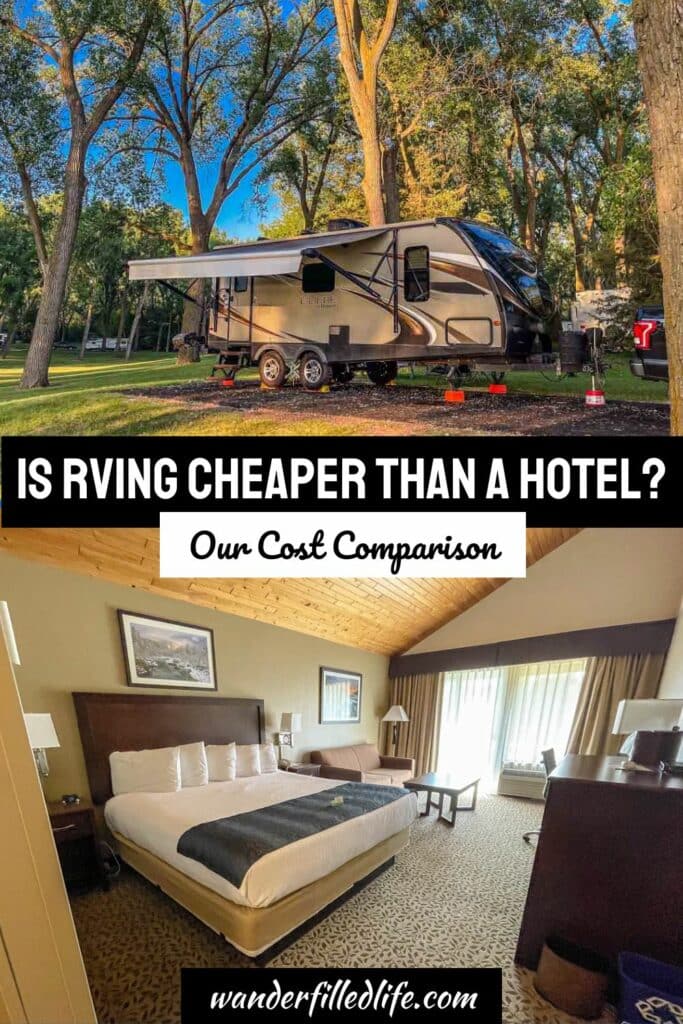
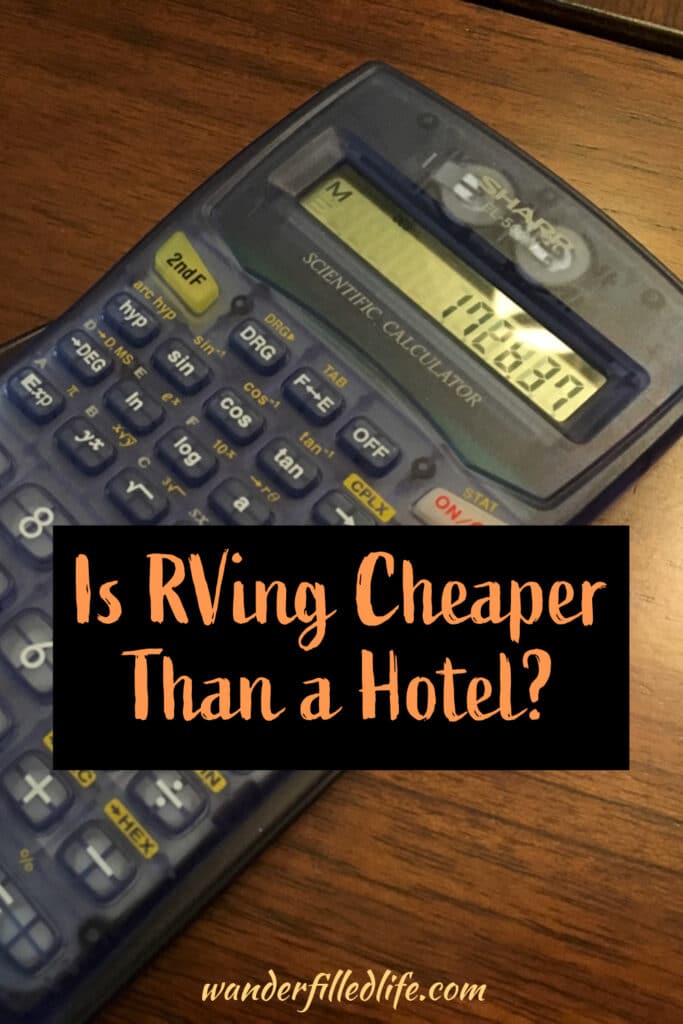
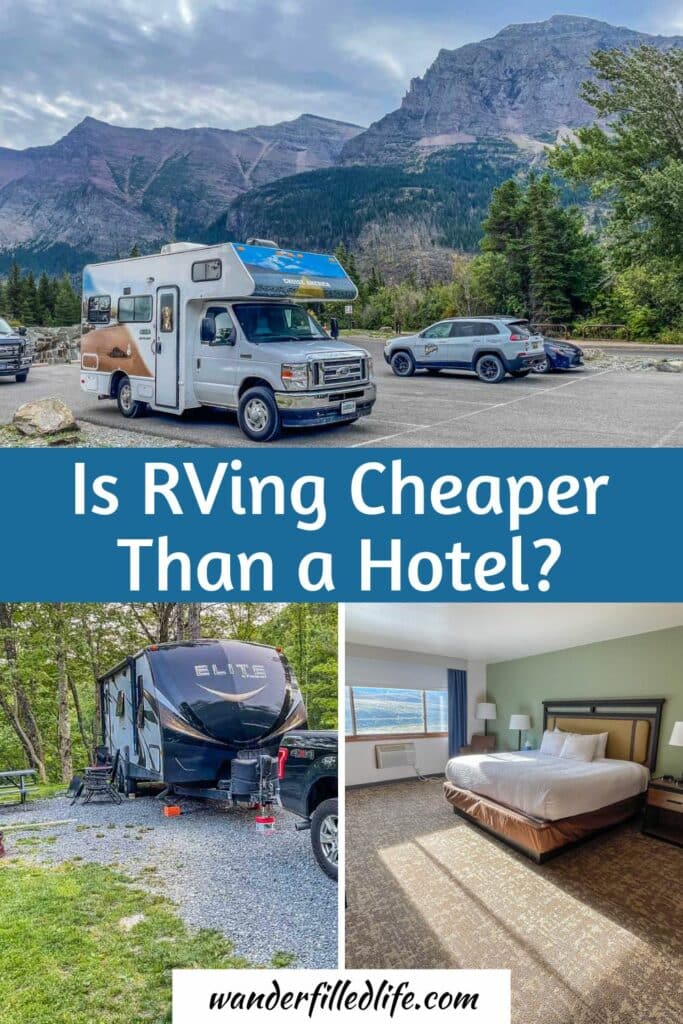


For the RV you need to add the cost of depreciation to each night. If you only use the RV 30 nights a year it is very costly. For a $30,000 RV if it only depreciated 10% per year that would be $100 per night. Not many get four weeks of vacation to use the RV on road trips. We balance between hotel and tent camping.
Thanks Rick. I certainly agree depreciation should be a factor in ownership, but it should also be a factor in owning a car as well. The calculations for how much a camper depreciates are pretty messy when you start factoring in the kind of camper, etc., and I find the tax benefits of treating the camper as a second home outweighs a lot the depreciation. Still, you are correct that, for anyone who cannot get away very often, an RV is not the best investment.
Another comparison, and a very good argument for camping is to compare a week’s worth of camping to renting a cottage for a week.
Here in the Northeast, (e.g. Maine, Cape Cod, CT shore), expect to pay about 1200 – 1500 for a cottage for a week. That gets you your own kitchen, beds, etc, but you have to bring your own linen, towels, foods (which you either need to bring by cooler, or spend an evening shopping). You are also limited to a Sat to Sat or a Sun to Sun stay. That is a killer for a commute.
If you bring a camper to a campground, expect to pay about $50/night. But we have the advantage of going from a Friday to a Monday, thereby missing the weekend turnover and having a couple of extra full days to relax. Our camper’s fridge and pantry are already full, so grocery shopping is minimized. Also, the beds are already made, the clothes are already hung up, etc.
At a campground, you have the additional bonus of neighbors who share a lot of the same interests as you. We have always been very happy with the groups around us.
And finally, we use the pickup truck to tow the camper, but we bring the minvan to travel and do sightseeing. (better gas mileage, more space, etc).
Just my two cents worth.
Thanks so much! Couldn’t agree more!
Is anyone counting happiness points here?? In my camper I can cook, shower in my clean tub..sleep in my own bed…my animals have their own space, toys etc…its like living at home without being there. This to me is more important than saving some money. If you look at hotel and meals out..rv living still has to be cheaper…plus I’m a pretty good cook so the food coming out of my kitchen is way better for you and more cost effective!! Count me in as a happy 5th wheel owner!!!
We 100% agree, Wanda! We would much rather be staying in our camper than a hotel, well, because it’s our home away from home. But happiness points are hard to quantify for the budget-oriented folks out there.
Grant,
I just found your story while looking at Pinterest and it hit home for me. We are trying to decide between tent camping, cabin rentals in VRBO and a little RV. We camped and did VRBO this summer for 33 days.
We were in Panhandle of FL, Georgia, North Carolina and Tennessee. We had to continually put tent up and down and try to keep our food cool but secure it nightly from possible bears. The RV sounds expensive but it sure sounds more comfortable for sleeping and fior our puppy. Thanks for sharing your trip and the numbers.
Thanks so much, Mari. While we have found it is more expensive than tent camping, the comfort outweighs the cost of a travel trailer. That said, we already had the truck and only had to make minimal improvements to get it ready to tow.
We cheated there.Bought the truck with the intention of towing an RV one day. And then didn’t let sales folks talk us into too much trailer for the truck. Our #1 point for the RV was taking the puppy with us. Though I do find that many places don’t like German shepherds.
That’s awesome! We bought our first truck with the intention of being able to tow a trailer but had not thought about being able to tow an RV, so we didn’t get the max tow package. We made sure to get that for our new truck and love it.
Many of us do not already own a truck. This adds to the math; depreciate the added cost of truck and camper, compared to the car. If you can keep truck and camper at $50,000; an RV 60 nights a year; then RV is about even with staying at a motel. Of course, there may not be a motel near where I would be staying in an RV.
I agree, Michael, that owning a truck is an important part of this equation. Unless you are just using the truck to tow the camper, you are getting more value out of the vehicle than just towing the camper. Our truck is our daily driver and we use it for a lot more than just towing the camper, which reduces the truck’s cost in the equation.
Regardless, it is expensive.
Just found this post on cost comparison and it is right where I am currently. We have had a travel trailer for three years now and before that we tent camped. But recently I have been trying to reduce cost. We took a trip this last summer for three weeks in the TT that was well over $2000, the vast majority was cost of fuel. One of the mistakes I made when we bought our trailer was I didn’t consider the massive air dam front end on the trailer going down the road it just kills my gas mileage, and if there is a head wind it’s horrible. Our trailer is 28ft long and about 1 to 1and half feet wider then our tow vehicle on each side, just massive amount of air pushing back against the trailer. Bottom line we are considering going back to tent camping and are researching ways to make it more comfortable like using cots to get off the ground that kind of thing. We also are considering a smaller trailer such as a teardrop that has far less wind drag being towed. Thank you for you comparison insight.
Kurt, we agree on the gas mileage. It is about a 50% loss for us… Down to 10-12 mpg. If I were looking at a teardrop for my wife and me, I would make sure it had doors on both sides. Another option (one I still kinda fantasize about) is one of the R Pods. They are a lot smaller and lighter than our trailer. The big thing we would lose is the walkaround queen bed. There’s nothing worse than having to climb over someone to use the bathroom in the middle of the night.
You can also reduce the per-night cost of sleeping in the RV by parking at Walmart’s, Cracker Barrel’s, Cabella’s/Bass Pro Shops, etc, where they allow. Call ahead to the location you wish to stay at and see if it is allowed. Cities are starting to ban it in some places but not all. You have to be mindful of your location, you are not setting up camp, only spending the night before moving on. We do this on road trips when we are traveling through an area but not staying. You don’t have any hook ups so you need to have water in your fresh water tank and enough battery to get you by for the night. Helps in reducing the cost of getting from point A to point B
If you are thinking about a smaller trailer, you can look at pop-ups too. They are not the air-dam a TT is, they can have as many amenities as you want. The small teardrops can get pretty cramped if you are in it for very long, but if only using for a place to sleep, they work. You don’t need as large a vehicle for towing them as you do for a trailer. We have a Tahoe as our daily car, so it is not an extra expense for us. Our 19 ft trailer with 1 slide-out is perfect for our 5-6 week trips (retirement has it’s advantages) but would not be big enough for more than 2 people.
Deni,
We 100% agree with your comments. We boondocked a bit this summer. While we had some good experiences, we also had one of the worst nights ever at a Walmart parking lot in Evanston, WY. There were around 100 or so semis idling all night.
One of the biggest reasons we didn’t get a pop-up is camping in desert areas in the summer. We don’t do it much, but you can’t get to California from Georgia without going through the desert. For someone who doesn’t need to worry about that, it is a good option.
I had never camped before I met my husband. My folks would rent houses or condos and on the rare occasion we would stay in hotels. Otherwise spent a lot of time in the southern states where they owned homes. So as a 30 year old adult getting used to a tent took some time. However I decked it out so it was comfy and made sure we were booked in at one location for at least 4 nights before moving to the next location.
One of our last camping trips was while I was pregnant and we went to Montana where it was a steady 40 degrees Celsius (104F) for 8 nights. It was a long few nights but made bearable by staying at a KOA that had a pool.
After that we were camping at one of our favourite places, Jasper, and after too many bears in the area and campers leaving food out compounded with having a little child I decided that a hard shell around us would make me feel safe.
We recently bought an ultra lite 30’ bunkhouse trailer and love it. Also, to be honest my back couldn’t handle the air mattress anymore and it’s a lot of work setting up a huge tent for all of us. Our trailer has everything pre-packed in it, right down to our clothes so all I need, the day before, is to get the groceries figured out and we can be on the road.
We tow it with an F150 and have no issues in our Canadian Rocky Mountains. It truly is a home away from home. I don’t worry about cleanliness of sheets as I’m the one doing the laundry and it gives my husband a chance to cook meals which he loves to do.
Also we’ve met the most amazing campers from all over the world. That sort of meeting you just don’t get in hotels or cabins or chalets or rental houses.
We plan on keeping our trailer for at least 10 years and as we will only use it about 30 days throughout the summer and another 30 days in the fall so I’m okay with what we paid for it vs hotel costs and depreciation.
Research where you want to go and if you can get full hookups including sewer, do it! It’s the convenience of home on a smaller scale plus depending where you camp, the geography can be outstanding and the people you meet friendly and generous with tips and knowledge.
This is a great post and the comments people leave have been insightful.
We live in Alberta truck country so practically everyone drives an F150 or Ram 1500 and half of those owners have trailers/TT/5th wheels or boats.
Thanks so much Jenn! Whew! Eight nights of 104F in a tent would have driven me nuts, too! We agree with everything you said! We are thinking when/if we decide to go on the road fulltime about getting a 5th wheel with a bunkhouse. Bonnie has read a lot of cool ideas about converting that space into closets, which would be really useful if living in it fulltime.
Awesome article.
Thanks!